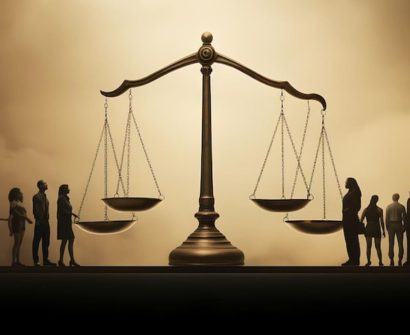
Corruption is a global issue that harms institutions, erodes trust, and stymies economic growth. Corruption is tenacious and continues to take advantage of vulnerabilities in legal structures and novel structures despite global attempts to eradicate it. It is essential to put robust rules and regulations and thorough legislation in effect in order to deal with this issue.
corruption: What is It?
- When those in positions of authority act dishonestly, it’s called corruption. The inclination to use public office for one’s own gain comes first.
- Furthermore, it is regrettable that many people have developed a habit of corrupting others. Because of how ingrained it is, corruption is now viewed as the standard in society. Therefore, corruption indicates an ethical breakdown.
corruption in india: Reasons for Prevalance
- Politicization of Civil Services: When positions in the civil service are traded for bribes or used as rewards for political support, there is a noticeable increase in the probability of high levels of corruption.
- Reduced Wages: The pay gap between civil servants and private sector workers is closing. Some employees may resort to accepting bribes in order to compensate for their salary disparity.
- Administrative Delays: The slow pace at which files are removed is the primary cause of corruption, since it forces common people to curry favor with dishonest persons and authorities in order to expedite the removal of their files.
- Weak Law Enforcement: Despite the fact that several laws have been created to combat corruption, their lax application has made it more difficult to do so.
corruption and india
The Indian Penal Code, 1860 and the Prevention of Corruption Act, 1988 both provide penalties for corruption against public personnel in India. Benami transactions are forbidden by the Benami Transactions (Prohibition) Act, 1988. Public employees who commit money laundering offenses are subject to penalties under the Prevention of Money Laundering Act of 2002. Since 2005, India has also signed the UN Convention against Corruption, however it has not yet been approved. In addition to outlining several preventive measures, the Convention addresses a broad spectrum of corrupt practices.
corruption laws in india
prevention of corruption act india
- It is one of the anti corruption law in india. It establishes sanctions for public employees who commit acts of corruption as well as for those who assist in such acts. Both the giving and receiving of bribes by individuals and by public officers are now illegal under the 2018 Amendment.
Prevention of Money Laundering Act, 2002
- The Prevention of Money Laundering Act, 2002 forbids the use of the “proceeds of crime” in India and attempts to stop money laundering incidents.
Companies Act of 2013
- Corporate governance and the avoidance of fraud and corruption in the corporate sector are outlined in the Companies Act of 2013. According to the Companies Act, fraud is defined broadly and is a criminal offense.
Indian Penal Code, 1860
- Provisions of the Indian Penal Code, 1860, can be construed to encompass offenses related to criminal breach of trust and cheating, as well as bribery and fraud.
Benami Transactions (Prohibition) Act of 1988
- The Benami Transactions (Prohibition) Act of 1988 prohibits the individual who purchased property under someone else’s name from claiming ownership of it.
corrupt practices: Process Followed to Investigate
- The Central Vigilance Commission (CVC), the Central Bureau of Investigation (CBI), and the state Anti-Corruption Bureau (ACB) are the three primary agencies tasked with gathering information, looking into, and prosecuting cases of corruption. The Ministry of Finance’s Directorate of Enforcement and Financial Intelligence Unit look into and prosecute cases involving public employees who have laundered money.
- Under the Indian Penal Code, 1860, and the Prevention of Corruption Act, 1988, the CBI and state ACBs look into instances involving corruption. While state ACBs look into issues within their states, the CBI looks into matters pertaining to the federal government and Union Territories. States are able to send CBI cases.
- A statutory organization called the CVC is in charge of overseeing corruption cases in government agencies.
- Under its authority is the CBI. Cases may be referred by the CVC to the CBI or the Central Vigilance Officer (CVO) in each department. The department authority has the last say over whether to discipline a civil servant, even whether the CVC or CVO advises taking action against a public official.
- In responsibility of monitoring corruption cases in government entities is a statutory body known as the CVC. The CBI is under its jurisdiction. The Central Vigilance Officer (CVO) in each department or the CBI may receive referrals of cases from the CVC. Whether or not the CVC or CVO recommends disciplining a public person, the department authority has the last say in the matter.
Conclusion
One thing is evident from the above analysis: corruption poses a threat not only to the economy of the nation or the world at large, but also to all of humankind. Thousands of people and families in India live in extreme poverty and suffer from a lack of access to basic necessities, forcing them to bear the harsh consequences of corruption.










